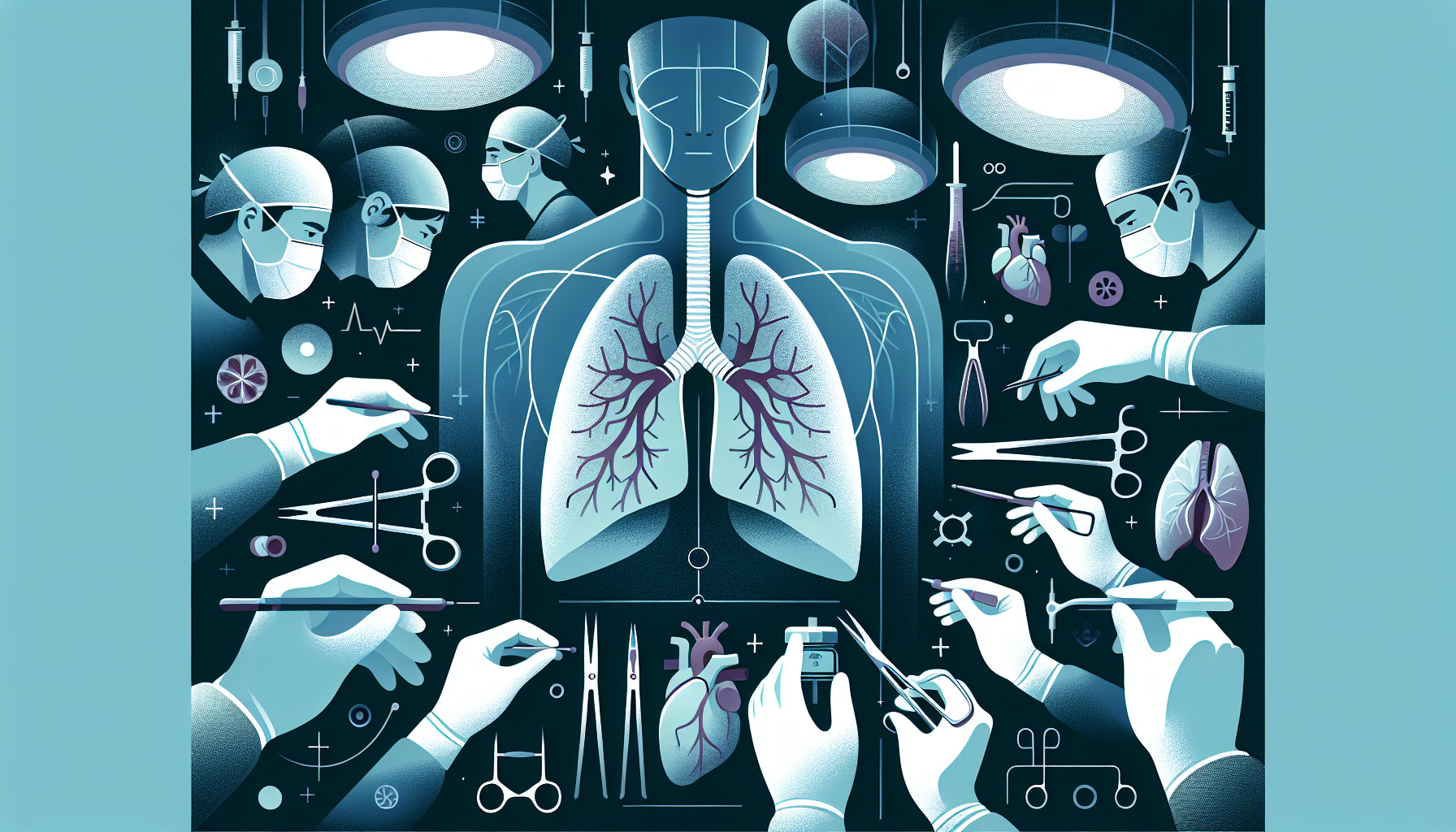Our Summary
This research paper is about how age affects the outcomes of lung transplant surgeries. The researchers looked at data for all lung transplants in the United States from 2006 to 2023 and found that lung transplants are more common in patients aged 65 and older. They found that older patients usually get a single lung transplant rather than a double lung transplant.
The study also showed that patients who received two lungs had a higher survival rate than those who received one, except for those aged 75 to 79. For this older group, the survival rate was about the same whether they received one lung or two.
The researchers also found that patients who had previously had heart surgery were more likely to die after a lung transplant and were also more likely to have a single lung transplant if they were older.
In conclusion, the researchers suggest that a double lung transplant may be better for patients up to age 74, but for those aged 75 to 79, a single lung transplant may be enough. Doctors should be careful when choosing patients for lung transplants, especially those who have had heart surgery in the past and are older.
FAQs
- Does age affect the outcomes of lung transplant surgeries?
- Is a double lung transplant more beneficial than a single lung transplant for patients up to the age of 74?
- Are patients who have had heart surgery in the past more likely to die after a lung transplant?
Doctor’s Tip
Additionally, it is important for patients who undergo a lung transplant to follow their doctor’s instructions closely, including taking immunosuppressant medications as prescribed and attending all follow-up appointments. It is also crucial for patients to avoid exposure to cigarette smoke and other harmful pollutants to ensure the success of their new lungs. Regular exercise and maintaining a healthy lifestyle can also help improve outcomes post-transplant. Remember to communicate openly with your healthcare team and seek support from family and friends throughout the recovery process.
Suitable For
Patients who are typically recommended for lung transplant are those with end-stage lung disease, such as chronic obstructive pulmonary disease (COPD), idiopathic pulmonary fibrosis, cystic fibrosis, and pulmonary hypertension. These conditions can severely impact a patient’s quality of life and may lead to death without a transplant.
Patients who have failed other treatments, such as medications, oxygen therapy, and pulmonary rehabilitation, may also be recommended for a lung transplant. Additionally, patients who are relatively young and otherwise healthy may be considered good candidates for a lung transplant, as they are more likely to have a successful outcome.
Overall, the decision to recommend a lung transplant is made on a case-by-case basis, taking into account the patient’s overall health, age, severity of lung disease, and likelihood of benefiting from the transplant. It is important for patients to work closely with their healthcare team to determine if a lung transplant is the best option for them.
Timeline
Before lung transplant:
- Patient is diagnosed with a severe lung disease such as COPD, cystic fibrosis, or pulmonary fibrosis.
- Patient undergoes evaluation by a transplant team to determine if they are a candidate for a lung transplant.
- Patient is placed on a waiting list for a donor lung.
- Patient may experience worsening symptoms and decreased quality of life while waiting for a transplant.
After lung transplant:
- Patient undergoes the lung transplant surgery, which can take several hours.
- Patient is closely monitored in the intensive care unit for a period of time after surgery.
- Patient begins the recovery process, which includes physical therapy, medication management, and frequent follow-up appointments.
- Patient may experience complications such as organ rejection, infection, or side effects from medications.
- Patient gradually improves over time, with many experiencing improved lung function and quality of life.
- Patient must adhere to a strict medication regimen and follow-up care to ensure the success of the transplant.
- Patient will need to make lifestyle changes such as quitting smoking and maintaining a healthy diet and exercise routine.
What to Ask Your Doctor
What are the potential risks and complications associated with a lung transplant surgery, particularly for someone in my age group?
How will my age impact the success of the lung transplant surgery and my overall recovery process?
What are the differences in outcomes between receiving a single lung transplant versus a double lung transplant, and how will you determine which option is best for me?
How will my previous heart surgery history affect my eligibility for a lung transplant surgery and my post-operative outcomes?
What is the expected survival rate for patients in my age group who undergo a lung transplant surgery?
How will my age impact the availability of donor lungs and the likelihood of finding a suitable match?
What is the expected recovery time and rehabilitation process after a lung transplant surgery for someone in my age group?
Are there any specific lifestyle changes or medications that I will need to adhere to post-transplant, given my age?
How frequently will I need to undergo follow-up appointments and monitoring after the lung transplant surgery, particularly considering my age and previous medical history?
Are there any alternative treatment options or therapies that may be more suitable for someone in my age group, rather than undergoing a lung transplant surgery?
Reference
Authors: Shacker M, Biswas Roy S, Arjuna A, Schaheen LW, Walia R, Bremner RM, Smith MA. Journal: J Thorac Cardiovasc Surg. 2025 Aug;170(2):413-422.e5. doi: 10.1016/j.jtcvs.2024.11.035. Epub 2024 Dec 7. PMID: 39647661
